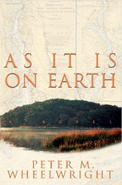It is with not inconsiderable risk that a fellow chooses to weigh in on the Tim Hunt faux pas, but it was the following article from The Guardian that caught my attention and emboldened me. It was not that I too attended a “single-sex school in the 1960’s” as Hunt’s wife, the immunologist Mary Collins, said in his defense, nor that the “single-sex school” I attended happened to have been in Hertfordshire where Hunt and his wife currently live. It was because Mrs. Hunt (er, Ms. Collins?,…not sure) looked and sounded so much like the protagonist in my new novel, The Door-Man.
Winfred Goldring, the protagonist, was real, an embattled woman in male scientific practice who rose to become the country’s first female State Paleontologist in 1939. No spoilers here, and I have taken imaginative liberties (although the quote about her knickers was taken from her letters in the State Archives in Albany).
If you’re interested, this “from 1921”:
“…When word of the discovery at the dam site arrived at the State Museum, Winifred Goldring was hopeful that she’d be sent to Gilboa to verify the find and collect samples. She knew the stratum where they’d been found. It was her Geological Period: Devonian.
She’d been at the Museum for six years, attached to what some of her colleagues referred to as the “The Garden Club.” The Director of the New York State Museum was a friend of her father’s, and had reluctantly taken her on to fill an empty niche in the Paleontology Department – Botany – flowers and plants, the ancient ones. She was the first woman on his scientific staff, and a gamble. Two degrees in the sciences from Wellesley College, a master’s thesis in geological morphology guided by the Harvard faculty, and a year at Johns Hopkins studying late Silurian and Devonian Period flora looked impressive on a man’s resume, but not on a woman’s. Science work just wasn’t very feminine. Nor, from the point of view of some her colleagues, was she.
The previous year, Winifred had been “promoted” to Assistant to the Assistant State Paleontologist. Her title had no precedent; everyone knew it had been conferred on her simply to keep her quiet. There had been no advancement in either responsibility or pay; she expected that. She knew she was lucky to have the job at all, but she also knew she was more than an “assistant.” Anyone who suggested otherwise met with a whiplash tongue, and was soon in retreat.
“Fred”, as she was called behind her back – even by some of the timorous women who actually were “assistants” – was considered to have a “man’s turn of mind”. This had originally been meant as a compliment during her schooling in paleontology, but it had taken a sarcastic turn when she took her schooling into the profession. Mastering the physical universe was just that – the work of masters, not mistresses.
She had heard it all her young life. In the predictive sciences, physics and chemistry, where mankind’s future was being determined, womankind had no aptitude for the mathematics; cool precision – not easily heated passion – was necessary in the laboratory; rolled-up sleeves and logical inference, not long skirts and dewy emotions. Even in biological and anatomical research, putrescent organs were unseemly in delicate hands meant for holding children. But it was worse in Winifred’s chosen field of science – the science that looked backwards in time to understand the present. Hunting for the origins of life meant rough travel around the earth’s lithic sphere in search of rough rock faces and the minute markings of the fossils embedded in their titanic folds and faults…beyond civilization, beyond a woman’s safety.
Nevertheless, Winifred Goldring, although thin and fragile in aspect, had a formidable and fearless mind. And she was insistent when it came to the Gilboa fossils. She’d heard that Gilboa was a particularly disorderly “civilization” with its rough-neck clash of nations, dispirited and dark-minded locals, and the relentless mayhem of machines ripping apart the ground beneath them all. Still, she could take care of herself as she had always done.
When Winifred came to work and displayed her father’s Black Powder Frame Colt .45 to the Director, he felt only embarrassment for her and tried to put her off. “Field work is dangerous, especially for girls in knickers. It’s alright for a man to make the trip, but a girl, even armed with a revolver, never.” The Director had intended his remark kindly, but he was serious – the men, when they could be spared, would be sent to Gilboa instead.
She held her ground, standing over him with folded arms as he sat at his desk. Perhaps it was the way she held the gun, confident and relaxed in one hand, nestled into the crook of her elbow,…or just that he couldn’t bear to stare down her eyes. He finally gave in. It would be unpaid leave; she’d have to make her own way and find her own lodging. That was fine with her, she had a sister in Gilboa, and she felt it was payment enough to get there ahead of the men. Which she did.”








